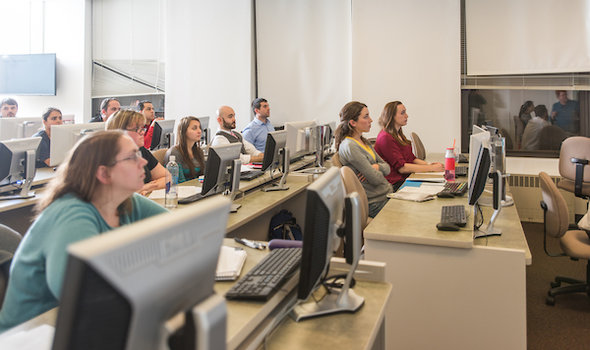Enter the Corporate World — Easily — With our Business Graduate Programs
Take your first step in management and marketing with business graduate programs at Bridgewater State University. Enroll in our master’s degree in business administration or business certificate program in business foundations.
In BSU’s master’s in business, you will hone your skills in business analytics, as well as managing people and organizations. Plus, you’ll learn how to apply critical thinking to solve complex business problems.
The business certificate program will provide a strong foundation in corporate finance, economics, business statistics, management and marketing.
Current BSU undergraduates have access to the MBA 4+1 program allowing them to start working toward their graduate degree early in their junior year.
You may choose full- or part-time course schedules, including evening and online classes, to get you to the finish line. In either graduate program, you’ll take away the knowledge, skills and confidence to land a managerial position in industries like accounting, finance, marketing, management, economics and statistics.






